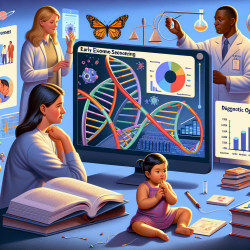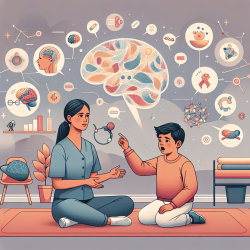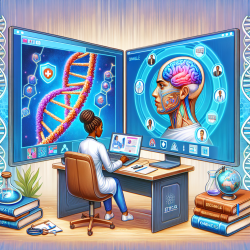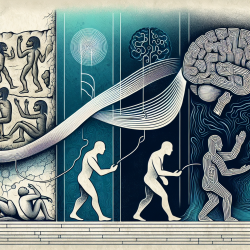As an online therapist working with schools, it is essential to continuously enhance your skills and understanding of the nuances of human psychology. A recent study titled "Experiential ownership and body ownership are different phenomena" provides valuable insights that can be leveraged to improve therapeutic practices. This blog will delve into the findings of this study and offer practical advice on how to incorporate these insights into your therapy sessions.
Understanding the Concepts
The study distinguishes between two types of bodily self-consciousness: body ownership and experiential ownership. Body ownership refers to the sensation that a body part or the entire body belongs to oneself. Experiential ownership, on the other hand, is the sense that one is the subject of a particular experience. While these concepts might seem similar, the research demonstrates that they are distinct phenomena.
Key Findings
The study conducted experiments where participants watched a rubber hand or someone else’s body from a first-person perspective while being touched either synchronously or asynchronously. The main findings were:
- The sense of body ownership was hindered in asynchronous conditions but a strong sense of experiential ownership was observed.
- Conversely, in synchronous conditions, only experiential ownership was blocked but not body ownership.
These results highlight the double dissociation between body ownership and experiential ownership, confirming that they are indeed different types of bodily self-consciousness.
Implications for Online Therapy
Understanding these distinctions can significantly enhance your therapeutic approach, particularly in special education settings. Here are some practical ways to implement these findings:
- Customized Sensory Activities: Develop activities that specifically target either body ownership or experiential ownership, depending on the needs of the student. For instance, synchronous touch activities can help reinforce body ownership, while activities that focus on the subjective experience can enhance experiential ownership.
- Assessment Tools: Use questionnaires similar to those used in the study to assess the levels of body and experiential ownership in your students. This can provide a baseline to tailor your therapy sessions more effectively.
- Integration in Therapy Sessions: Incorporate exercises that involve both visual and tactile stimuli to engage different aspects of bodily self-consciousness. For example, virtual reality (VR) environments can be used to simulate different perspectives and enhance the sense of body ownership.
- Training and Development: Stay updated with the latest research and continuously refine your techniques. Encouraging professional development through workshops and courses on these topics can be beneficial.
Encouraging Further Research
The findings of this study open up new avenues for research in the field of bodily self-consciousness. As a practitioner, you can contribute to this growing body of knowledge by conducting small-scale studies or case reports within your practice. Collaborating with researchers can also provide deeper insights and more robust data.
In conclusion, understanding the distinction between body ownership and experiential ownership can significantly enhance your online therapy sessions. By implementing these insights, you can provide more targeted and effective interventions for your students.
To read the original research paper, please follow this link: Experiential ownership and body ownership are different phenomena.










